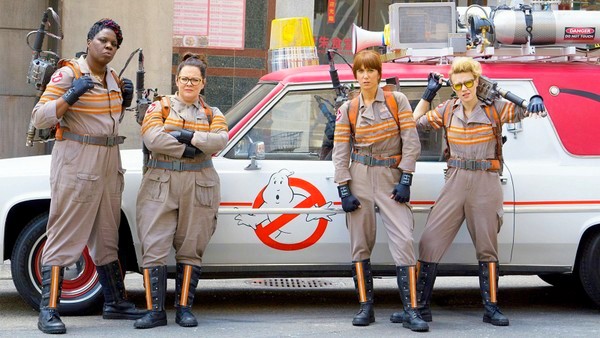
Movies have never really been escapist entertainment, and in this election year summer of electoral discontent, no less an authority than New York Times chief critic A.O. Scott recently identified the "grand, overarching themes" of this year’s blockbuster movies: "the problems of management and morale in the modern office."
In "Even Superheroes Punch the Clock," Scott writes: "This summer, your local multiplex is home to an extended business seminar. There are sessions on crisis-management and how to deal with office romances ('Star Trek Beyond'), on office rivalries and mission-statement drafting ('Captain America: Civil War'), on start-ups ('Ghostbusters') and I.T. disasters ('Jason Bourne'). Every action movie is a workplace sitcom in disguise."
You probably thought "Suicide Squad" was about a team of supervillains recruited for a top-secret mission. Arguing that it’s also a movie about "difficult personnel issues," Scott points out that "[a]t one point, Will Smith’s Deadshot complains about the leadership techniques of his immediate supervisor, a grim-faced military dude named Rick Flag, played by Joel Kinnaman. Flag’s way of maintaining discipline among squad members is to implant an explosive charge in their necks, which he can remotely detonate if anyone gets out of line. (We’ve all had bosses like that.) Deadshot, in that kidding-but-not-really-kidding Will Smith way, suggests a different approach, maybe one based on the teachings of Phil Jackson."
And in the latest "Star Trek" installment, Scott notes that the Enterprise even "provides a setting that resembles an actual office, with screens and workstations and a dress code." The workplace references go even further: "The ship is a subsidiary of a multiplanetary body called the Federation, in principle a utopian political entity but in practice more akin to a modern diversified corporation, with global (that is, galactic) reach and a complex bureaucratic structure," Scott writes. "Captain Kirk is a division head whose responsibilities include dealing with external crises."
While Scott is obviously having some fun, his analysis is serious and well-grounded. "The prevalence of ensemble-based, job-oriented big-budget movies also can be seen as an update of the westerns and platoon pictures of the 40s and 50s…(and) representations of the offices where more and more Americans spent more and more of their time," Scott suggests. "Part of what makes work tolerable is the idea that it is heroic, the fantasy that repetitive and meaningless tasks are charged with risk and significance." But—and this may explain some of Donald Trumps appeal—"[t]he alienated, misunderstood individuals—the white guys struggling with the burdens of power—who defined the genre in the early 2000s have for the most part been absorbed into larger affiliations. It’s a team sport now, and the movies are about the dynamics within the team itself."
"External threats have been replaced by internal conflicts," says Scott. The archvillain in "Star Trek Beyond," Idris Elba’s Krall, "is a former Federation officer who didn’t like the direction the organization was going. A disgruntled employee. A malcontent Luddite. An enemy of innovation. In the final battle, Kirk helps him negotiate a severance package."
And Scott argues persuasively that "'Jason Bourne'...is one of the few recent blockbusters that examines the underside of modern working life, since it adopts the point of view of the disaffected worker trapped in a nightmarish bureaucratic maze. All of Bourne’s enemies, as well as his potential allies, are colleagues of one kind or another, and his very existence is a horrifying reductio ad absurdum of life on the corporate treadmill."
Let’s see: "Star Trek Beyond," "Captain America: Civil War," "Ghostbusters," "Jason Bourne" and "Suicide Squad" are all workplace movies. Cool, I think we just got a head start on next year’s DC Labor Film Festival.
Chris Garlock is the director of the DC Labor FilmFest, which will celebrate its 17th year in May 2017.

